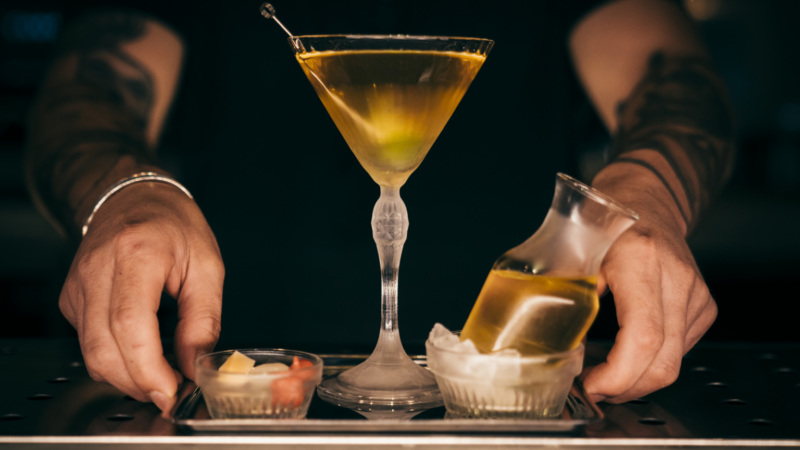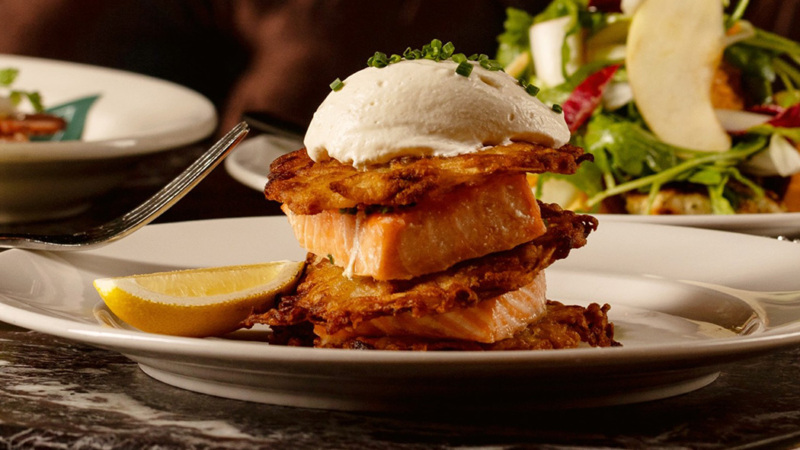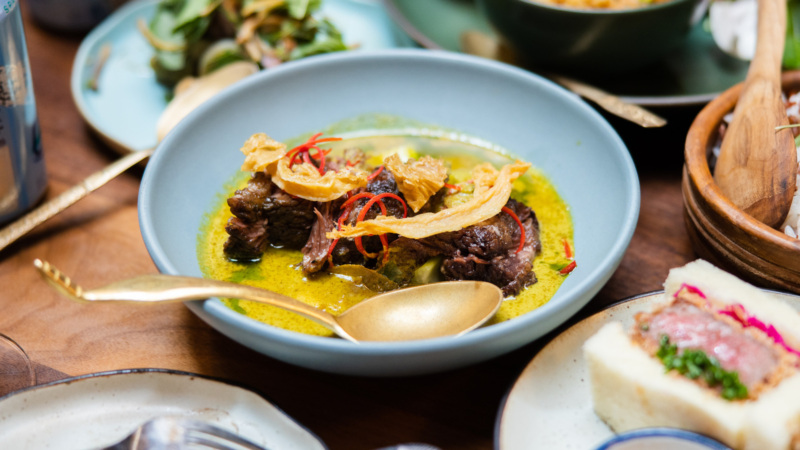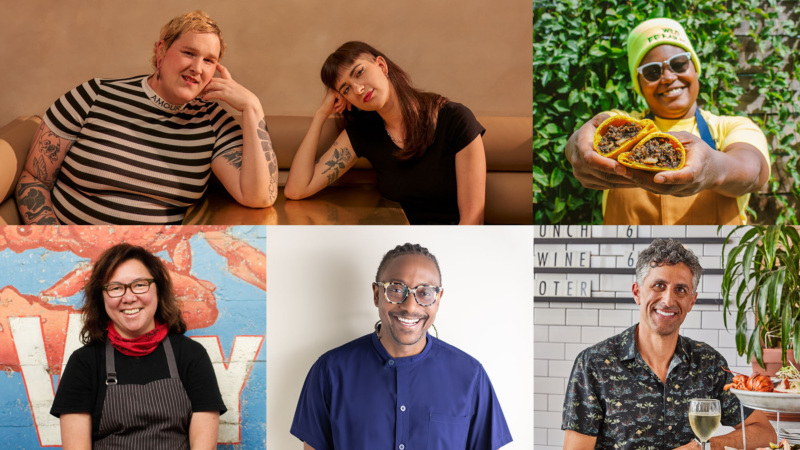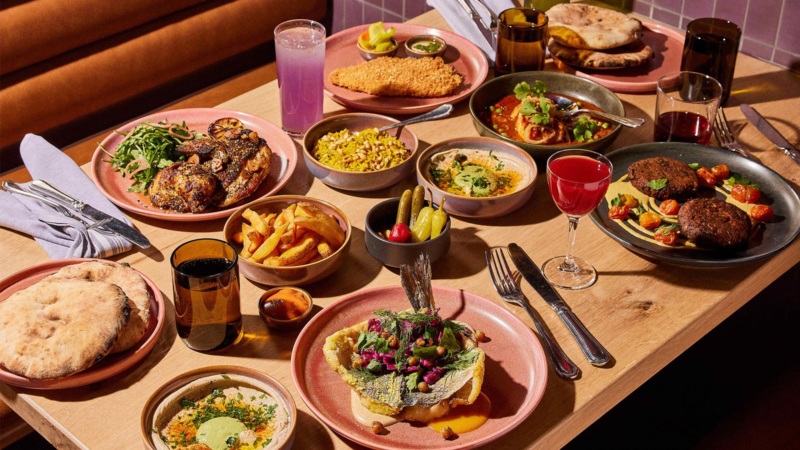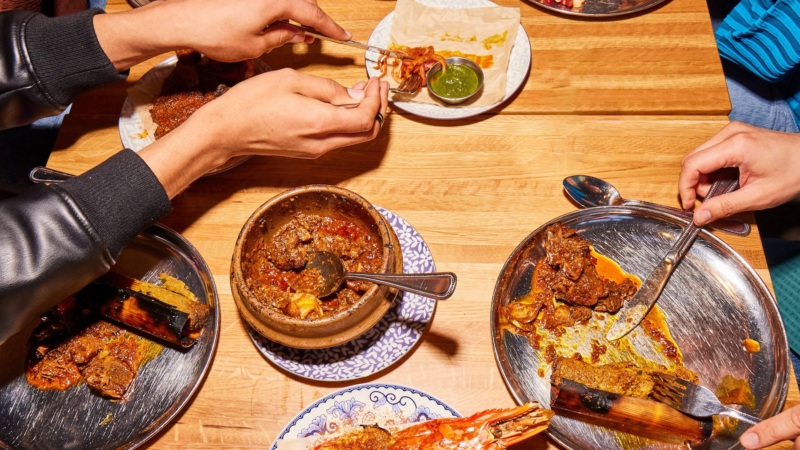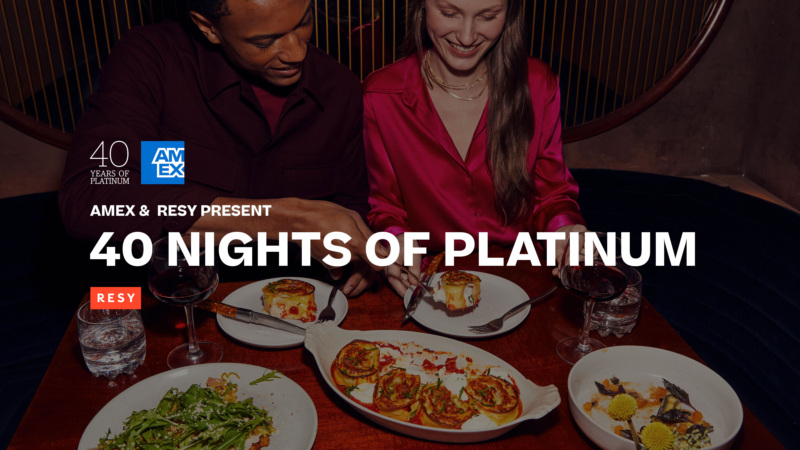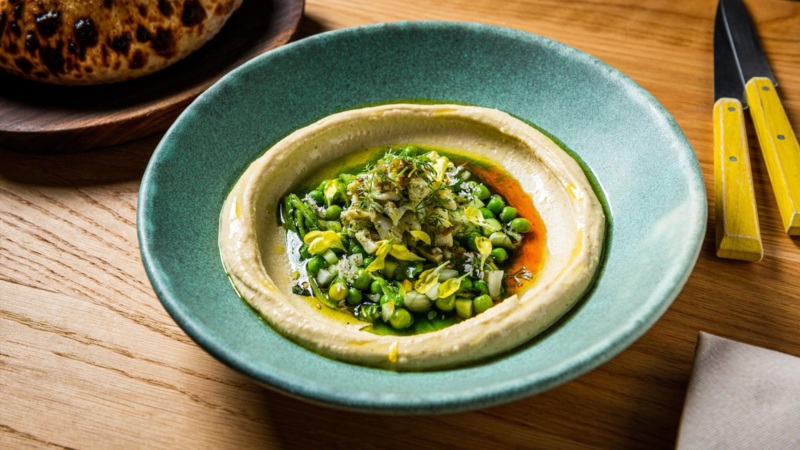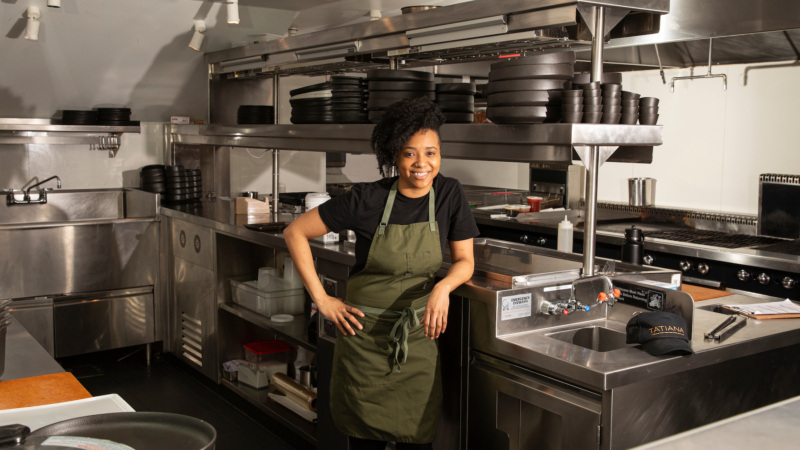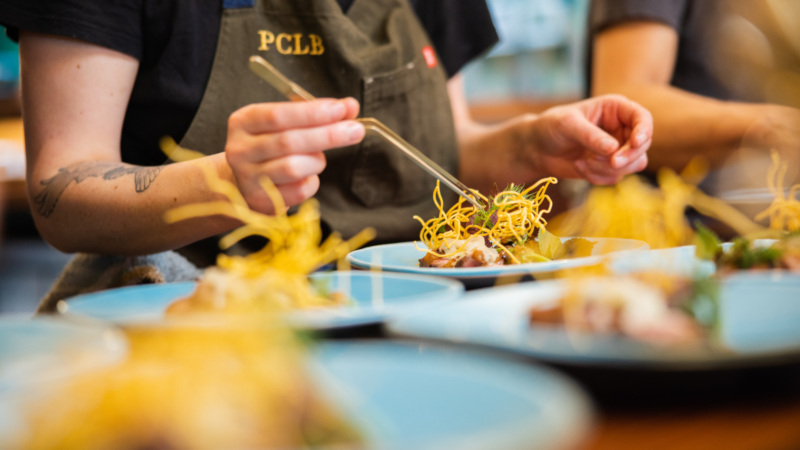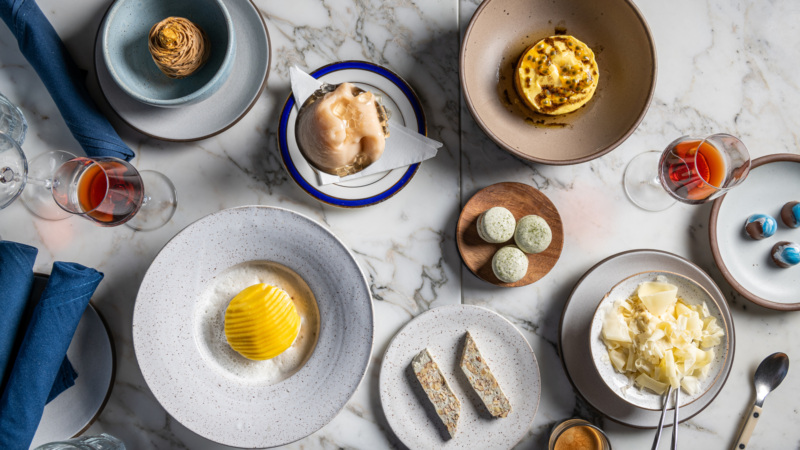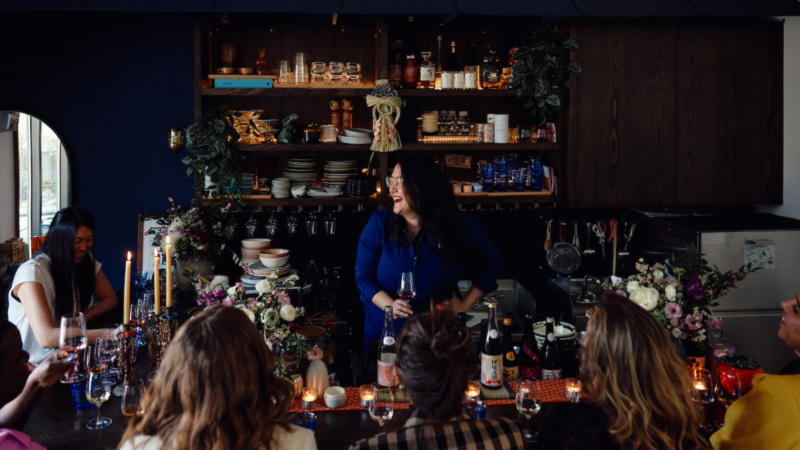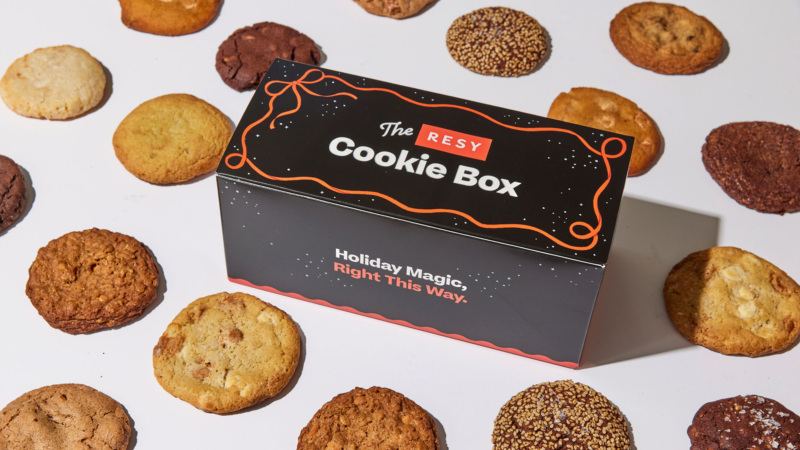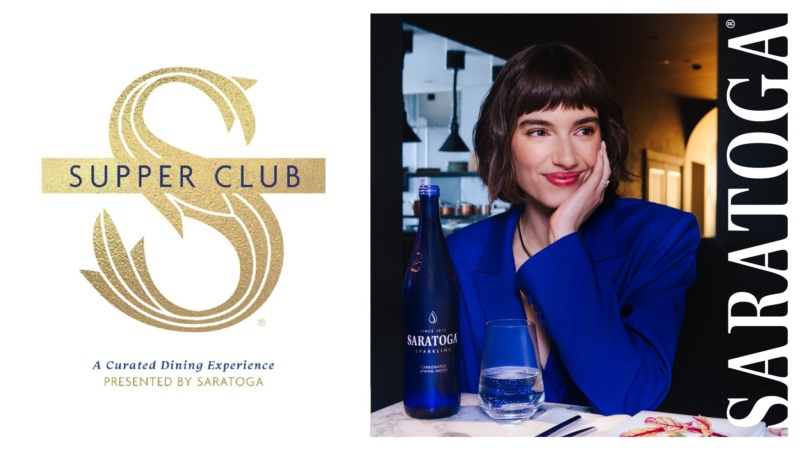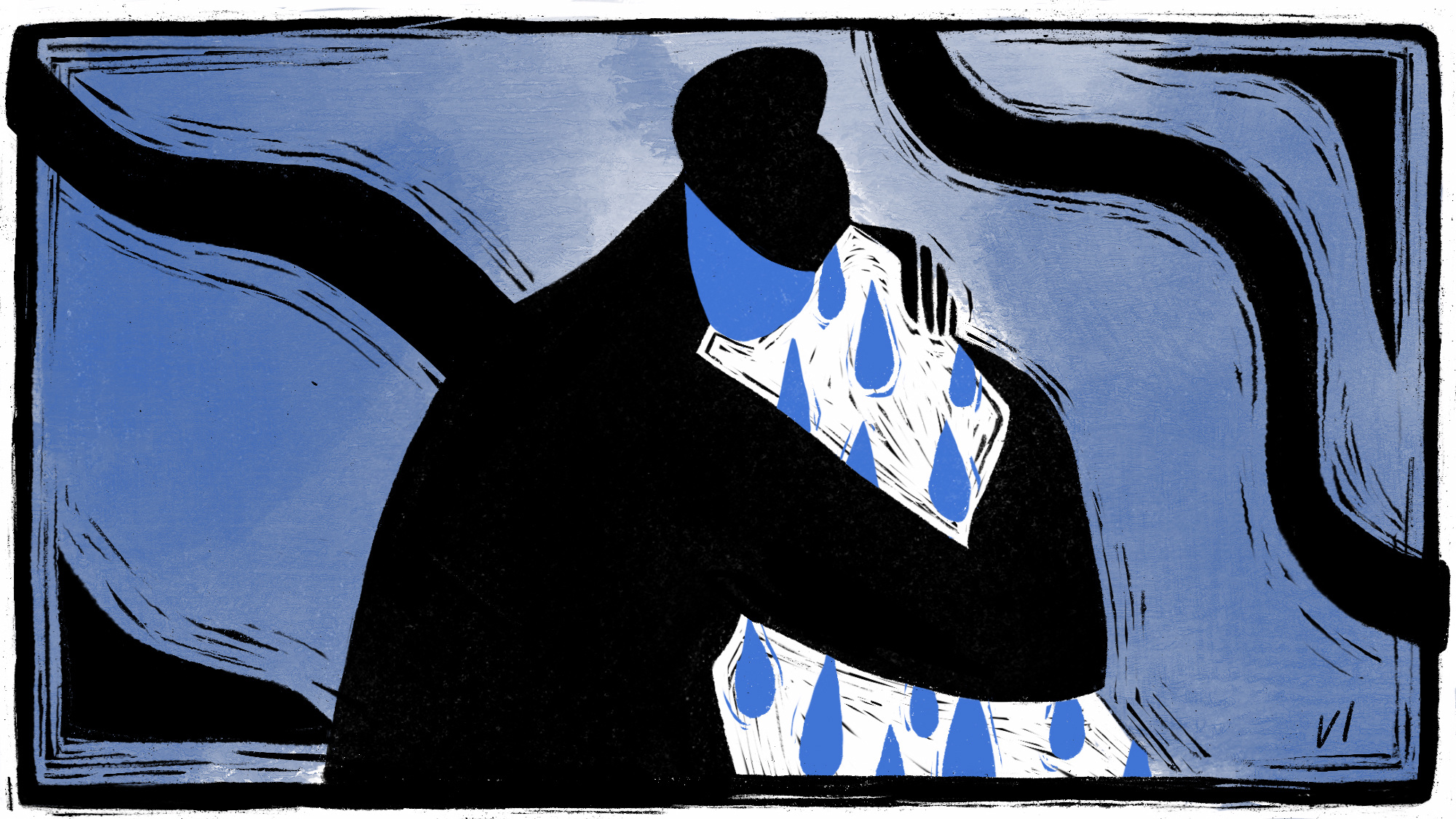
Black Food Folks Present National
The Alchemy of Grief
This story is the first in an ongoing partnership between Black Food Folks and Resy.
Aretah Ettarh is a chef based in New York City. She can be found on Instagram at @aretahettarh. Her words follow.
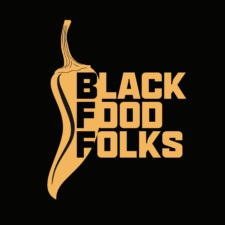
I was standing at the pass a few months ago, having a conversation with one of the food runners, when a guest came up to me from behind. She leaned into my ear, asking me where the bathroom was while simultaneously rubbing my arm. I stopped mid-sentence and turned towards her, while she stood expectantly waiting for an answer. I showed her where it was, she thanked me, and though the entire interaction happened quickly and without much preamble, I had to collect myself before I could fully process what just happened.
I was shocked. During normal circumstances, I would not want a stranger touching me without my consent. It’s strange at best, horrifying at worst. If you compound it with the fact that we’re living during a global pandemic, it made the moment that much more mind-boggling. But it was also another reminder of the disconnect between those who understood the times we are living in and those who don’t.
Granted, most guests are great. They’re comprised of devoted regulars, tourists who heard about our restaurant and are excited to finally experience the food and service for themselves, people who came to celebrate special occasions, and people who just love restaurants and the restaurant experience. They’re the people that we develop relationships with over time. They are the reason why we go above and beyond to make moments special. But unfortunately, a lot of guests share a level of entitlement and selfishness that translates into a rather glaring disregard for the simple fact that the staff working in restaurants are people.
We are people with family, friends, and loved ones who we want to see at the end of all this. We are people who want to live to see the end of all this. It feels strange and erring on the side of dramatic as a relatively healthy, 28-year-old millennial to think of the worst-case scenario, but I knew from personal experience that this virus can make loss happen quickly and suddenly.
***
My dad lived with type-2 diabetes for as long as I knew him. It was something that he managed both successfully and unsuccessfully throughout the course of my life, but he did the best he could within the confines of the healthcare system that we Americans live in.
In May 2020, he contracted COVID-19.
14 days after his diagnosis, he developed viral pneumonia and acute respiratory distress syndrome (ARDS), which tends to occur after already being in the hospital for infection or trauma. It causes fluid to leak into the lungs, making it difficult to get oxygen into the bloodstream, and requires the patient to be put on a ventilator to aid with the ability to breathe.
He had been responding to the medication but shortly after those developments, my sister and I received a late night phone call from his doctor informing us that he had suffered a stroke. We were told us it was a good idea to start “making preparations.”
He lived for 28 more days, in and out of consciousness, struggling to breathe, and very much alone.
42 days after his initial diagnosis, he died.
The days following were wrought with emotion. The ups-and-downs made me feel like I was back in elementary school with the playground parachute. I was surrounded by people who were holding the cloth up, offering words of comfort and condolences, willing to shoulder the burden for brief pockets of time. And when I looked up, in the center of it all, I could see the colors that made life wonderful and beautiful. For stretches of time, I felt the breeze; it was so much easier to just breathe.
But then, like all things that soar, the parachute eventually had to come down. And as I felt the impending wave of grief drift closer and closer, I knew there was nothing I could do to stop it. As I felt the weight of something that seemed so fragile to begin with settle on my most broken parts, all I could do was wait for the world around me to help me inflate it again. All I could do was wait for the next moment of reprieve.
It was months later that one of those reprieves came in the form of going back to work.
And 52 days after my father died, that’s what I did.
***
Everything about that decision was complicated. My grief had been complicated because my father and I were not close while he was alive, and so to grieve him in death often felt very selfish of me. The only context of grief I had seen were people with a deep love and reverence for those lost, and so navigating loss in the context of estrangement had left me feeling particularly adrift. It felt really lonely. So it made sense to return to work, throwing myself back into something that would keep me busy for most of my day, five days a week. It made sense to go back to a steady paycheck and benefits like health insurance, knowing that the stimulus benefits would soon run out and the weekly unemployment check in New York was laughable in comparison to living expenses. It made sense to return to something familiar; something that felt steady and real, and not like the rudderless boat in a storm of the last few months. I wanted to feel grounded during a time when my world felt incredibly off-kilter.
At the same time, the idea of returning back to work during a pandemic — one that I now had a personal connection with — didn’t make sense to me. How could I go back to navigating a world that was still running rampant with this deadly virus, when vaccines weren’t yet available? How could I take the subway from my apartment in Bushwick into Manhattan twice a day and increase my chances of contracting COVID? How could I walk into work and look at the guests in the restaurant, knowing there would be plenty of people who would be maskless, regardless of whether they were eating or drinking? How could I not lose it when I inevitably heard the story of the guest who decides to choose anger as opposed to empathy when our staff kindly asks them to put on their mask?
I wrestled with questions like these for days before ultimately deciding to return to work. Once I did, a part of me was happy that I would be able to see my friends again, be able to cook good food, and face an entirely different challenge that I had never faced before. I knew that on a professional and, in its own way, a personal level, this would be good for me. Yet I couldn’t shake the fact that the staff and I were putting ourselves at risk. Every time we hit a new milestone in on-site dining sales, I couldn’t help but think: at what cost? Every time a guest would go to the bathroom either maskless or improperly wearing it, I wanted to grab them and yell “put your f—ing mask on!” For every less-than-stellar review about the restaurant not being how it once was, I wanted to reply, “No s— Sherlock, we’re operating during a pandemic.”
But how could I be that surprised? As workers, we have seen our industry decimated in real time because of our government’s complete unwillingness to provide the necessary relief for restaurants to safely close for the duration of the pandemic. As citizens, we are tasked with making the difficult choice between working or figuring out another form of income simply as a means of survival. As consumers, we hear our favorite restaurants and bars asking us to do things like order food directly through them (instead of through predatory third-party apps), buy gift cards, and buy merch because they are in danger of closing otherwise. And as humans, it feels like we are having a psychological war with one another, as the “ideology” of mask-wearing became more about politics and less about caring for the well-being of ourselves and our fellow person.
And so I write this essay as a reminder to those who choose to dine at restaurants, get delivery from restaurants, and support restaurants.
Those people making your food, and making your drinks, and washing the dishes, and serving you food? Those people are people.
There was never a question that we would lose people to this virus. But knowing that so much of this loss was preventable might be the most devastating part of all of this. Growing up, I was taught life, liberty, and the pursuit of happiness was part of the social contract. I thought that was something we were all committed to upholding.
But if that promise was made to be broken, why did we make it all? If we are allowed to be so callous with each other, then it’s high time we reevaluate the direction of our moral compass.
It is painful seeing so many Americans talk about the 450,000-plus individuals who have died during this pandemic in the abstract, knowing full well that I move and exist within the confines of it. That for me, I don’t want to reduce my father to a statistic, but that maybe saying it out loud will help remind people that the many lives lost are people that belonged to someone else.
I’ve never been a fan of qualifying statements in the face of tragedy or trauma. Questions like “What if it was your son? Or your daughter? Or your mother?” seem irrelevant. I know it’s easier to manage and synthesize emotions by directly relating it to your own lived experience, but statements like that strip away the essence of empathy and humanity that are ideally inherent to us all. It shouldn’t take placing hypothetical pain and suffering upon yourself to understand that we shouldn’t want the worst-case scenario for anyone, because we are sharing in the beauty and tragedy of the human condition.
***
I always pictured my dad as someone who would always stay in the peripheral of my life. Now that he’s gone, I constantly ask myself: How do you grieve for someone you never planned on losing in the first place?
I’ve grieved so many things over these last months. I’ve grieved for the moments that we shared in the past that were filled with laughter and joy. I’ve grieved for the time we spent not speaking. I’ve grieved for loving him. I’ve grieved for hating him. I’ve grieved for the times we had and the times lost. I’ve grieved knowing all the time we had left to lose is now here, sitting in the ether. I’ve grieved for all the possibilities — the what ifs, the how comes, the why mes. But ultimately, I’ve grieved him. I’ve grieved him, too.
Grief, loss, mourning. These words all seem to have jumbled together and become malleable in a time when a pandemic is ravaging the world. I don’t know if grief outside the confines of a person is applicable in the same way, which feels strange to say as I mourn the loss of many of the great restaurants that were staples of their communities and the breadth of talent in this industry that has been left without a safety net. Maybe it’s because I’m dealing with grief in the most tangible and literal way, but right now, grief is the anchor in which my father’s soul rests. And so I continue to grieve, knowing that some days are easy, while plenty are not. I continue to grieve, surrounded by memories wholly afforded to me with ones that I envision but won’t ever be able to make.
So, if 2020 is the year we, as a nation, realized the magnitude of our moral failings, then I hope the years ahead include a commitment to rebuild, and ultimately heal, from the ramifications of this ocean of grief.
And, maybe someday, the alchemy of my grief will feel less like an apology.
Maybe someday, the alchemy of my grief will feel more like a promise.
Aretah Ettarh is a Nigerian American, born and raised in New Jersey. While attending the University of Delaware studying Hotel, Restaurant, and Institutional Management, she discovered a passion for cooking and restaurants. After graduating, she attended the Culinary Institute of America at Greystone, where she earned a certificate in the Accelerated Culinary Arts Program. Upon graduation, she moved back to New York and trained in Michelin-starred restaurants, most recently as sous chef at Gramercy Tavern. She can be found on Instagram: @aretahettarh.

